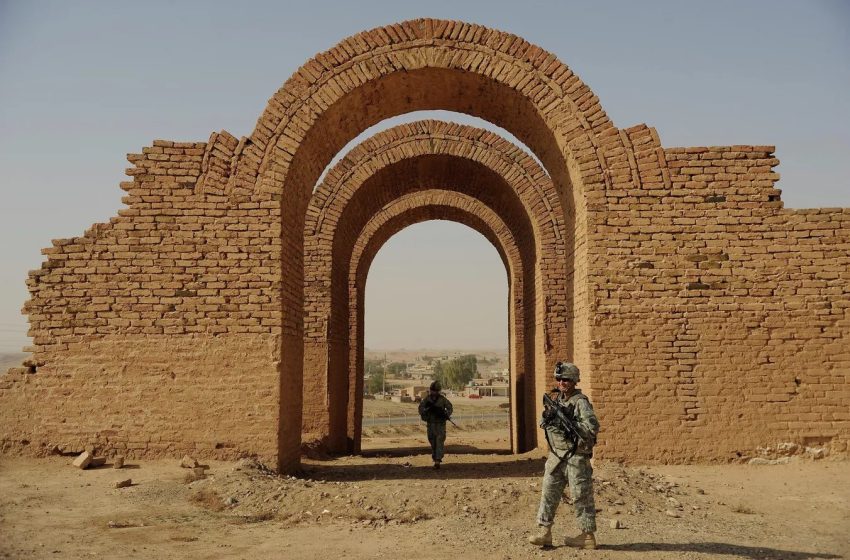U.S. mission participates in excavating antiquities in Iraq

Two U.S. soldiers standing around a historical site in the city of Ashur, the ancient religious capital of Assyria, located on the west bank of the Tigris River in northern Iraq. Photo: The U.S. Army
Baghdad (IraqiNews.com) – A U.S. excavation mission arrived in Dhi Qar governorate to explore the city of Lagash (Tell Al-Hiba), northeast of Nasiriyah city, according to the director of the State Board of Antiquities and Heritage (SBAH), Laith Majid Hussein.
Hussein also confirmed that foreign excavation teams began to arrive in Al-Warka in Muthanna governorate, Eridu in southern Iraq and in Nineveh governorate.
Antiquity inspector of Dhi Qar governorate, Shamil Rumayd, said that Tell Al-Hiba site covers an area of more than 600 hectares, and it is one of the largest sites in southern Mesopotamia.
Rumayd explained that Tell Al-Hiba site was inhabited from the fifth millennium BC to the middle of the second millennium BC.
Rumayd indicated that excavations began in this city in 1968, and continued for intermittent periods until 1990.
During this period, the excavations revealed huge buildings such as temples and residential houses, as well as many findings of high cultural and artistic value, in addition to a large collection of high-quality seals.
These buildings and findings indicated the great cultural depth and the prosperity of this site during ancient times.
“Through the continuation of advanced exploration work in the city of Lagash since 2019, a very important industrial area was found. Its importance lies in the scientific results that would add to our knowledge about artisanal areas in the cities of ancient Iraq, especially during the third millennium BC,” Rumayd clarified.
The University of Pennsylvania followed different directions in terms of scientific researches and the excavation work related to this site, according to Rumayd.
Rumayd added that geographical analyses and geological examinations are taking place to reveal important results regarding the extension of the ancient Gulf.
Currently, research and excavation work on this site is ongoing under the leadership of a group of professors and researchers with different specializations.
